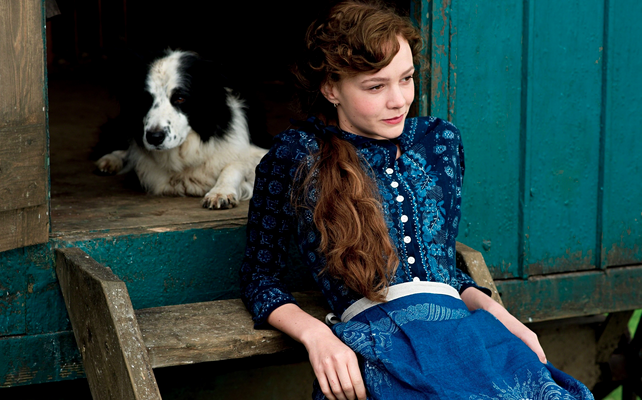In general, movie adaptations–especially ones that have already been done before–rarely offer anything new to enliven or enrich the original literature on which they are based. However, Danish director Thomas Vinterberg’s rendering of the Thomas Hardy classic, Far From the Madding Crowd, breathes refreshing life into the tale of a woman torn between a desire for independence and the natural want for love. Indeed, not since Keira Knightley’s interpretation of Elizabeth Bennett in the 2005 version of Pride and Prejudice has a beloved character been so endearingly played.

Opening with a slightly different intro than the one of the book, Vinterberg infuses a touch of modernity by having the story narrated from Bathsheba’s perspective as she notes, “Bathsheba Everdene. Bathsheba. The name always sounded strange to me. I don’t like to hear it said out loud. My parents died when I was very young so there’s no one to ask where it came from. I’ve grown accustomed to being on my own. Some say even too accustomed.” This inner dialogue, created entirely by author and screenwriter David Nicholls (of Starter for Ten and One Day fame) deviates from the exact way the book unfolds, yet encapsulates everything about Bathsheba while still remaining faithful to her literary incarnation.

Her initial encounter with Gabriel Oak (Matthias Schoenaerts), too, is altered to favor a more contemporary perspective. Rather than Gabriel catching sight of her looking at herself in the mirror while being escorted by a carriage to her aunt’s house, he sees her riding a horse alone through the hillside, striking a more self-reliant note to the twenty-first century viewer. The manner in which Gabriel asks Bathsheba to marry him is altered as well, with her aunt disappearing from the room to leave him an opportunity to speak to her privately. Though the rejection remains the same, the novel finds Bathsheba largely absent from the first proposal. Nicholls’ script additionally favors omitting the scene where Bathsheba rescues him from a fire in his hut. But then, the time limits of film can’t help but cause an omission or a conflation here and there.

Gabriel’s misfortune to end up having to look for work in the nearby town of Weatherbury also finds Nicholls taking the opportunity to squeeze in certain events with others, such as his first encounter with Fanny Robin (Juno Temple) at a gathering of soldiers attempting to enlist more men to join, as opposed to how it is in the book, in which Gabriel runs into her on his way to the Malthouse to meet the bailiff, Pennyways, and other notable workers of the Everdene farm, including Jan Coggan and Joseph Poorgrass. By meeting her in the setting of soldiers, however, we are introduced to Sergeant Troy (Tom Sturridge) and his relationship to Fanny much sooner.

It is details such as these–tweaked or removed–that make this film version of Far From the Madding Crowd feel more current and up-to-date than any other before it (though John Schlesinger’s 1967 version with Julie Christie is also worth seeing). Perhaps this proves, once again, that the work of Thomas Hardy is among the most timeless ever written.





















